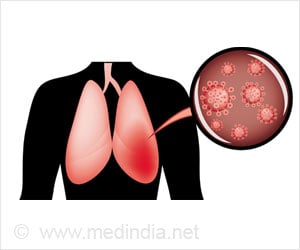A study was conducted at the Department of Radiology and Physical Medicine in Andalusian hospitals where radiotherapy is not favored more over other procedures such as chemotherapy or surgery.
A study was conducted at the Department of Radiology and Physical Medicine (departamento de Radiología y Medicina Física) of the Universidad de Granada, by Doctor Patricia Cabrera Roldán, and directed by Professor José Expósito Hernández in Andalusian hospitals where radiotherapy is not favored more over other procedures such as chemotherapy or surgery. The study has revealed that the application of radiotherapy treatment often exceeds appropriate time limits, and varies a lot depending on the hospital in which such treatment is applied.
This study is based on the data of patients, treated in any of the 10 Andalusian public hospitals during a period of one year, who were submitted to radiotherapy procedures for the treatment of tumours in the breast, lung, head and neck, cervix and endometrium. The researchers’ main objectives were to analyse the frequency of application of radiotherapy treatment in patients suffering from cancer (rate of radiation) and to determine the existence of substantial differences in the application of radiotherapy treatment among different hospitals.The scientists from the Universidad de Granada revealed that, in Andalusia, radiotherapy procedures vary depending on the hospital in which they are applied. The main differences affected are: common treatment procedures (purpose and type of treatment, simulation methods used in the treatment, immobilisers or verification systems) and the definition of the treatment itself (total dose and treatment volume).
According to Patricia Cabrera Roldán, “Radiotherapy is not used as much as expected for the treatment of cancer in the hospitals analysed”, pointing out that this statement applies to the five hospitals studied. Finally, Patricia states that this fact is partly caused “by the incomplete equipping of the hospitals’ high-energy units”, but also by the doctors’ preferences, since application of radiotherapy “varies among the hospitals studied, even when an equal number of treatment machines are available for use”.
The study also reveals that, generally, patients start their first treatment of the illness on time and without inappropriate delays. “Even though the application of radiotherapy treatment often exceeds appropriate time limits, and varies depending on the hospital in which such treatment is applied”. According to researchers, this excess of time may be caused by the fact that most of the patients receive treatment combined with surgery, radiotherapy and chemotherapy. This fact may represent a methodological problem of the study.
In light of these results, the Scientists think that health authorities should, on the first hand, adjust the material means necessary for the treatment of cancer in Andalusia; on the other hand, they should improve the introduction of cancer treatment protocols, agreed and based on scientific evidence.
Cancer is the second main cause of death in our society after cardiovascular diseases. However, it is estimated that in the 21 century, cancer will become the leading cause of death.
GAN /J











